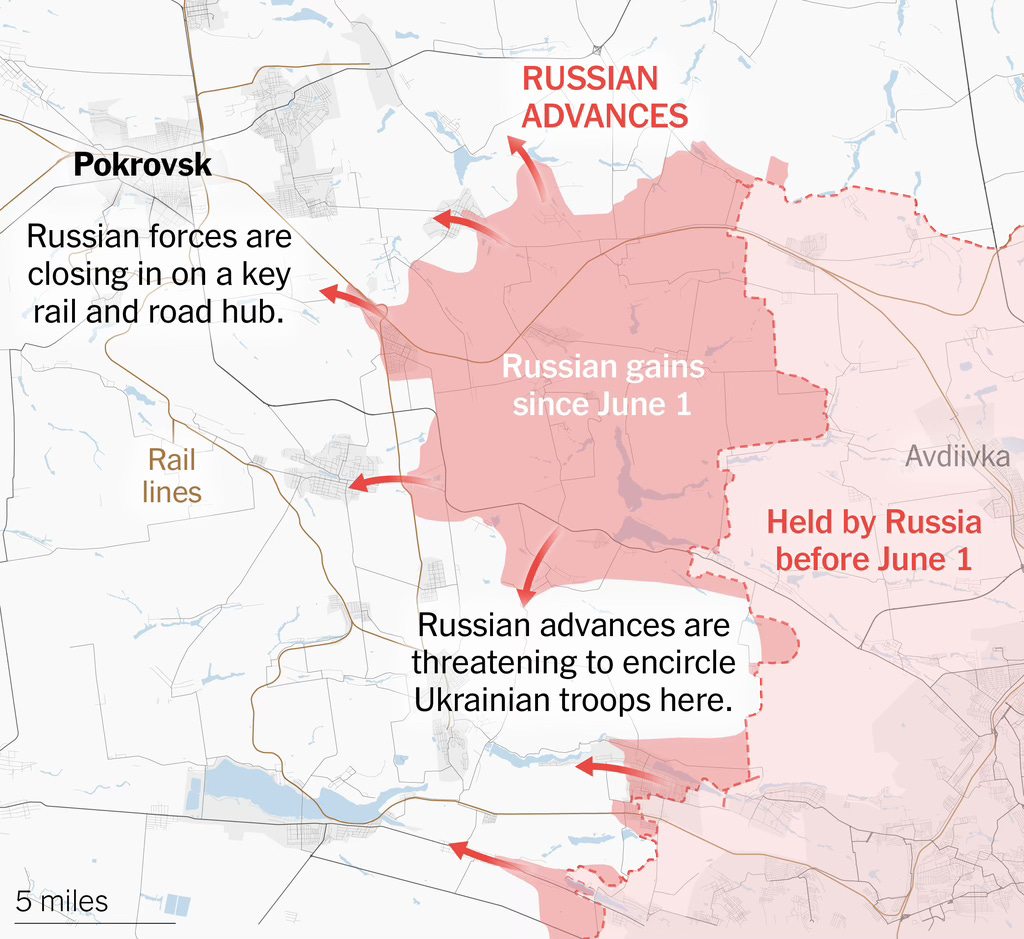Reprinted from Bracing Views with the author’s permission.
It’s Friday the 13th, and though I’m not superstitious about the date, I’m not liking this headline in today’s New York Times:
Top News

That’s a headline that proves once again that America is led by the best and brightest. (Sarcasm alert.)
Vladimir Putin has already said that long-range weapons striking targets in Russia means war between Russia and NATO. I don’t think he’s bluffing. And, lest we forget, Russia has nearly 6000 nuclear warheads in its inventory.
Why is the U.S. and NATO allowing Ukraine to use missiles that can strike targets deep into Russian territory? The short answer is that Ukraine is losing the war. But any escalation by Ukraine can be matched (and over-matched) by Russia. The most likely scenario is an even more devastated Ukraine. The worst-case scenario is World War III.
Wars are made by fools with stars on their shoulders and produce more fools, especially in government circles. Ukraine isn’t going to win the war by launching Storm Shadow missiles 150 miles into Russia. More attacks on Russia are likely to reinforce Putin’s rule than to weaken it.
Meanwhile, Ukraine continues to lose more territory to Russian forces in the east, as this map (courtesy of the NYT) shows.

In a war that’s now lasted more than two and a half years, we’ve been told repeatedly that new “magical” weapons will make all the difference for Ukraine, whether Leopard and Challenger and Abrams tanks or F-16 fighter jets or ATACMS or what-have-you. Yet the Russia-Ukraine War is largely an old-fashioned infantry and artillery war, a land war, an attritional war, in which Ukraine is slowly being worn down.
Long-range missiles launched into Russia aren’t going to turn the tide in Ukraine’s favor. But they may provoke a devastating response from Russia that could provoke a far wider conflict. And for what, exactly?
William J. Astore is a retired lieutenant colonel (USAF). He taught history for fifteen years at military and civilian schools. He writes at Bracing Views.
